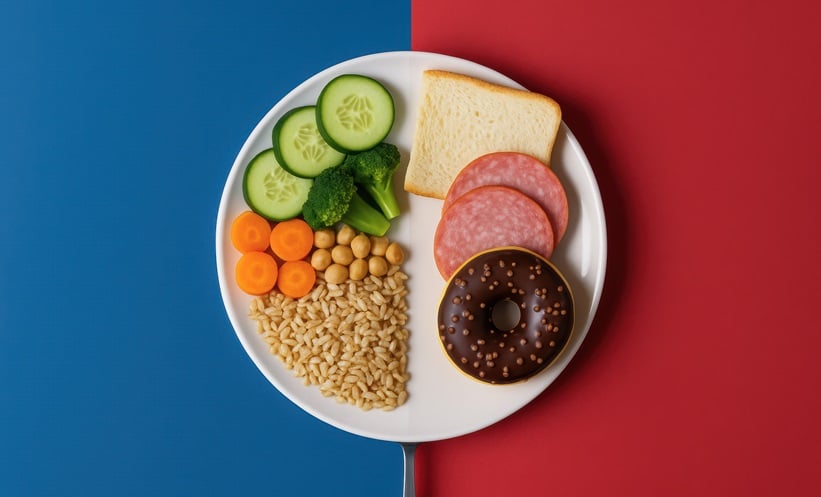A LARGE French cohort study has demonstrated that the level of processed food in the diet outweighs the distinction between plant- and animal-based foods when predicting cardiovascular disease risk.
Cardiovascular Risk Goes Beyond Plant vs Animal
Researchers analysed data from over 63,000 adults participating in the long-running NutriNet-Santé study. Dietary records encompassing both food origin and processing level revealed that even nutritionally balanced plant-based diets lose their protective effect when dominated by ultra-processed items. These findings challenge the assumption that all plant-based diets are heart-healthy, underscoring the importance of food quality over labels and marketing.
Processed Food Level Determines Heart Outcomes
Over a median of nine years’ follow-up, participants with the highest adherence to a healthy and unprocessed plant-based diet showed a 44% lower incidence of coronary heart disease (HR 0.56, 95% CI 0.42–0.75) and a 32% reduced risk of overall cardiovascular disease (HR 0.68, 95% CI 0.53–0.88) compared to those with the least adherence. Conversely, those following an unhealthy, ultra-processed plant-based diet faced a 46% higher incidence of coronary heart disease (HR 1.46, 95% CI 1.11–1.93) and a 38% higher incidence of cardiovascular disease (HR 1.38, 95% CI 1.09–1.76).
Foods driving this elevated risk included pre-packaged meals, sugary cereals, sweetened drinks, and packaged snacks, while diets rich in whole or minimally processed food, such as fresh produce, unsweetened frozen vegetables, or unrefined grains, were most protective. The results indicate that processed food content can either undermine or amplify diet quality regardless of whether a diet is plant- or animal-based.
Implications for Dietary Guidelines and Public Health
These findings reinforce the need for dietary advice to extend beyond macronutrient balance or plant-based preference. Minimising processed food intake and prioritising unprocessed or lightly processed ingredients appear essential for maintaining cardiovascular health. Public health policies may need to promote not only reduced consumption of animal products but also limited reliance on ultra-processed plant-derived foods, aligning food manufacturing and consumer education with long-term heart protection goals.
Reference
Clémentine Prioux et al, Cardiovascular disease risk and the balance between animal-based and plant-based foods, nutritional quality, and food processing level in the French NutriNet-Santé cohort: a longitudinal observational study, The Lancet Regional Health—Europe (2025). DOI: 10.1016/j.lanepe.2025.101470








